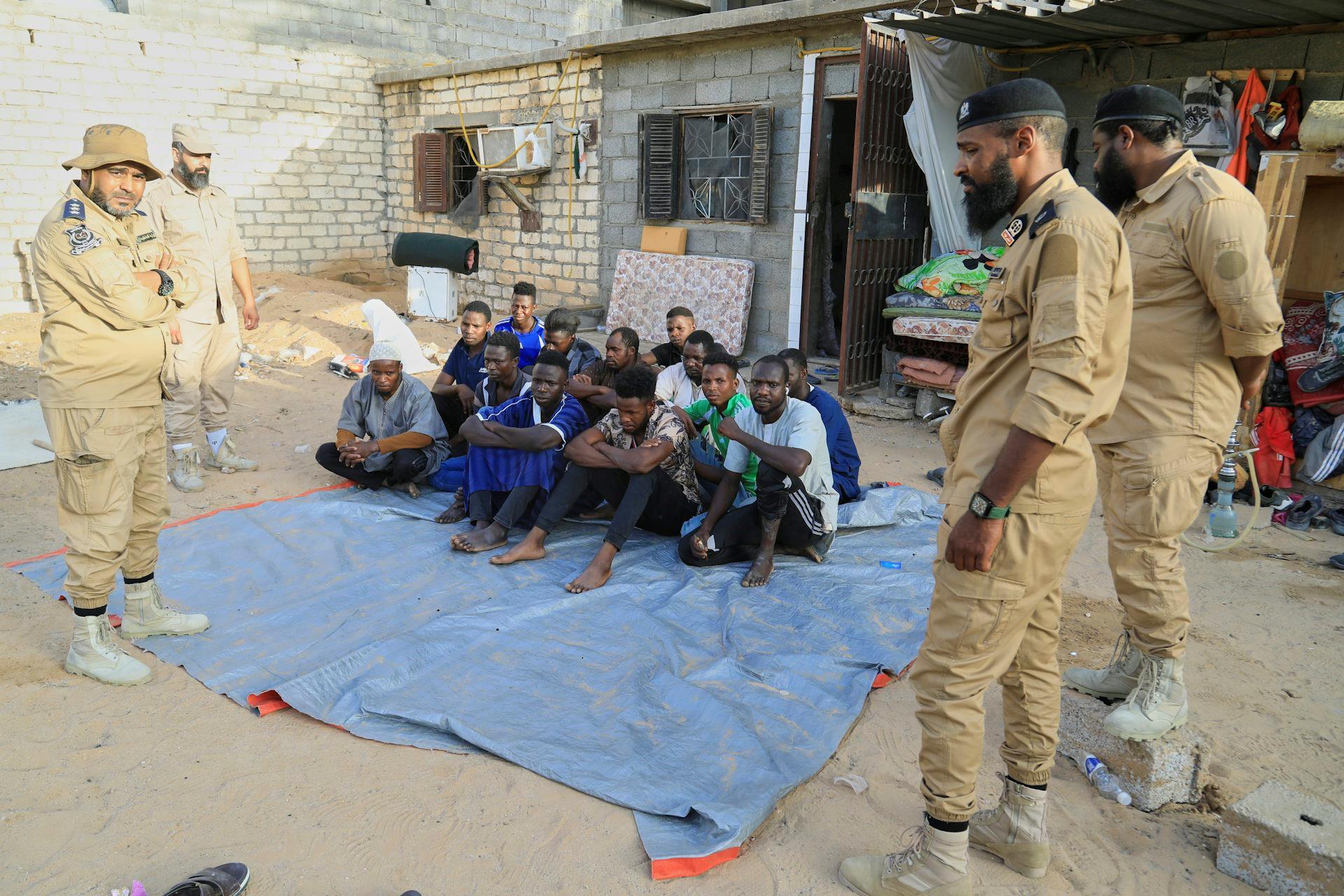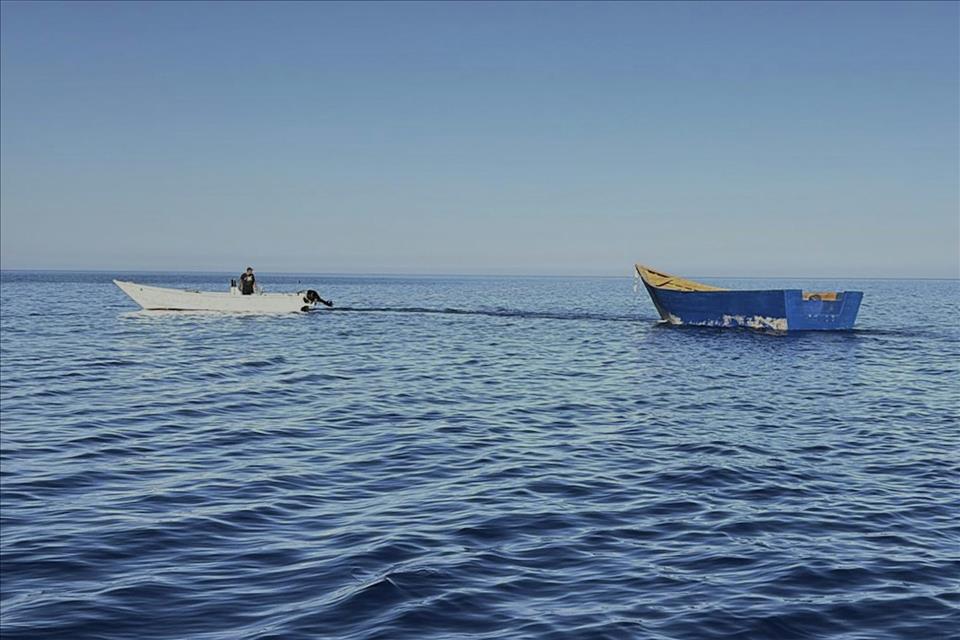
The Mediterranean: Both A Graveyard And A Bottomless Money Pit Due To EU Border Policies
But despite exponentially growing border budgets, people continue to take to the sea to reach EU territory, encountering violence and death . It's time to admit that this repressive strategy has failed and to ask what should come next.
In late 2013, shortly after the Lampedusa shipwrecks off the coast of Italy that claimed more than 400 lives , the Italian government deployed Operation Mare Nostrum in the central Mediterranean. More than 150,000 people were rescued in the following 12 months.
But with a monthly cost of nine million euros, the operation was deemed economically unsustainable .
A year later, in November 2015, Frontex (the EU's Border and Coast Guard) deployed Operation Triton to replace Mare Nostrum. The shift in names reflected a parallel shift in logic. Mare Nostrum (“our sea” in Latin, a nod to its role in sustaining life and bringing people together) was designed as a search-and-rescue mission. Meanwhile, Operation Triton (named after the mighty Greek god) focused on dismantling smuggling networks.
Turning pointThe operation marked a turning point in the EU's approach to migration control at sea. Frontex's legitimacy, mandate and resources expanded dramatically post-2015 . At the same time, European governments ramped up militarization and accelerated the delegation of border control to countries of departure.
In the central Mediterranean, Italy transferred 270 million euros to Libya's ruling elites by 2021, mainly to bolster the country's capacity to intercept migrant boats - often detected by Frontex drones surveilling the disputed Libyan rescue zone .
Meanwhile, the EU allocated 465 million euros from its Emergency Trust Fund for Africa (also created in 2015) to bolster migration and border control efforts by the Libyan government.
To this day, those“rescued” by Libyan forces are put in EU-funded detention centres where abuses are well documented and African migrants are allegedly sold as slaves .

Libyan policemen arrest a group of migrants in Tripoli, Libya, in July 2025. (AP Photo/Yousef Murad) Leaving migrants adrift
To the east, the EU agreed to pay Turkey nine billion euros between 2016 and 2023 to prevent people from Syria, Afghanistan and other war-torn countries from crossing into Greece in search of safety.
Boats crowded with entire families were - and are, to this day - pushed back to Turkey or left adrift under the very eyes of Frontex .
The same tactics soon spread westward. In 2019, Spain and the EU transferred more than 460 million euros to Morocco , plus additional funds for training and assets. Much of these transfers were, again, earmarked to develop the country's capacity to patrol the seas and intercept migrant boats. More recently, the EU and Spain reached similar agreements with Mauritania worth over 500 million euros .
Drastic cuts to public spending have become mainstream in the EU, yet governments do not hesitate to foot hefty bills for border enforcement. Frontex's projected budget for the 2021-2027 period is a whopping 11 billion euros. Additionally, an unknown amount is allocated to contracts with private companies that provide border technology .
The European Commission has proposed tripling this level of investment for its 2028-2034 Migration, Borders and Security initiative for a total investment of 81 billion euros.
Deaths at sea on the riseAll evidence suggests that these investments over the course of the last decade have failed to result in a safer sea or a more secure border.
The main objective of post-2015 maritime border policy was to dismantle criminal networks and prevent drownings. Instead, it has pushed people into the hands of professional smugglers , who have seen their profits soar as they exploit the lives of people on the move. Death has increased as a direct result of externalization .
The EU's efforts to manage maritime migration also sought to stop illegal border crossings. Yet safe and legal pathways to the EU remain extremely scarce. People fleeing persecution who have the right to seek international protection and workers responding to the labour demands of an aging Europe continue to leave their communities in search of a hope only the sea offers .
Deaths at sea, violence against migrants and government investment are increasing simultaneously along the EU's external maritime border. Over the last decade, the Mediterranean has become not only a graveyard, but also a bottomless money pit.
The bodies of migrants missing in the Mediterranean Sea after their ship wrecked off Italy's southern coast are disembarked at Roccella Ionica in June 2024. (AP Photo/Valeria Ferraro) Looking ahead
What are the options? The most obvious is to create a functioning system for the selection and recruitment of workers and refugees at origin.
There is also room for more ambitious programs: a recent study found that most people in the EU would favour large-scale regularization for people without status already in the territory.
The United Nations-endorsed Global Compact for Migration designed to improve co-operation on global migration issues offers an even more daring road map for a strategy that taps into the potential of government-managed mobility.
There are many possibilities. Whatever the choice, once thing is clear: militarization and delegation of border control are not only expensive but also ineffective.

Legal Disclaimer:
MENAFN provides the
information “as is” without warranty of any kind. We do not accept
any responsibility or liability for the accuracy, content, images,
videos, licenses, completeness, legality, or reliability of the information
contained in this article. If you have any complaints or copyright
issues related to this article, kindly contact the provider above.


















Comments
No comment